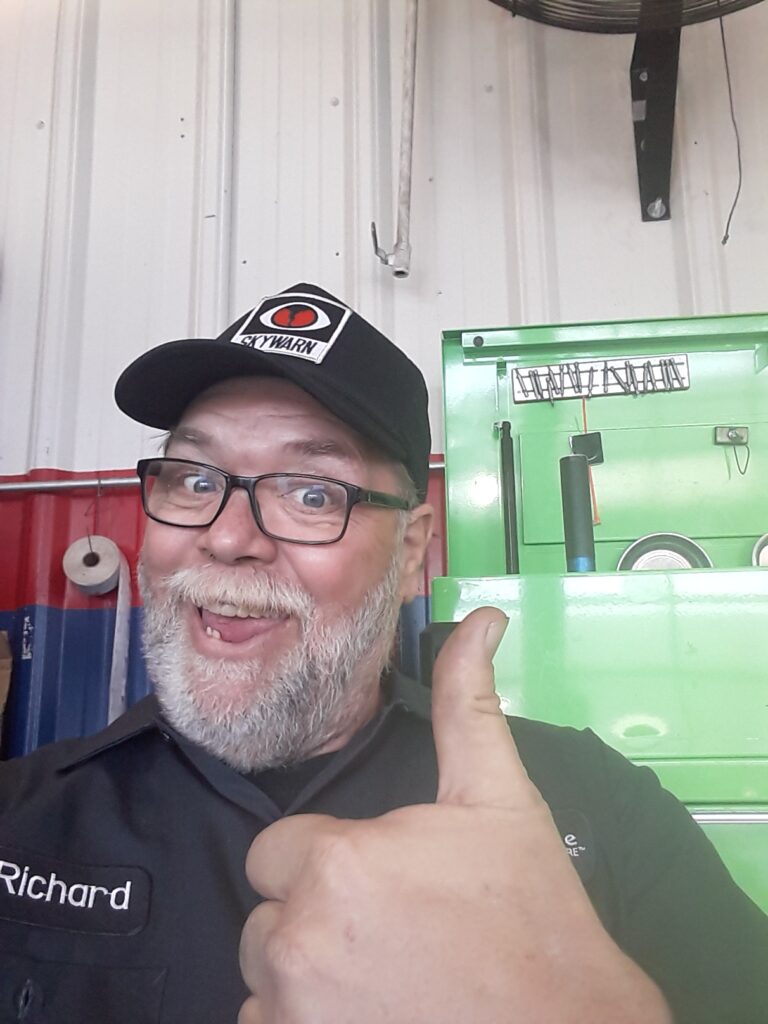
Ok kids, time for another installment of “On The Job”. I’m thinking of changing the name of this series to “One job, One team, One mission” Let me know what you think.
The other night at work my mind was wondering and it landed on the subject of “working as a team”. This is a recurring train of thought for me because the vast majority of my coworkers over the years have considered themselves “Working Solo”.
I’ve had a few jobs over the years where I was literally working “Solo”. These were mostly during my time as a private security officer and had to do with me sitting outside some business in the middle of the night watching the building deteriorate and keeping up with the antics of the local wildlife. We are talking about “Solo”. There was also plenty of excitement back in the security days, when I wasn’t watching a building decay. More on that another day.
So you are more than likely part of a team. Currently I am part of a team that is one long chain from gathering the raw materials for production of items to feedback after delivery. Pretty impressive HUH?
I am of course speaking on the macro scale but it is still true. Even if you flip burgers for a living you are part of a team that stretches from the folks that work to manufacture the fertilizer to grow the feed for the livestock to the 5 year old playing with his burger and stuffing french fries up his nose.
Most of us really aren’t able to focus on this long chain of team work on a day to day basis. In the long run we really don’t need to. We do however need to consider our smaller local team and how we fit in with and interact with that team.
Yes, we are talking about “Team Building” but we are not talking about going off in the woods to a retreat and letting people catch you when you fall backwards so you can build trust in them. We are discussing creating bonds with the people you work with and identifying their needs in the workplace while making them aware of yours. This is a key to smooth operation in the workplace and smooth operation makes your duties much easier day in and day out.
To put it plainly. If I don’t do my job to the best of my abilities it makes my co-workers’ tasks more difficult and vice versa. Most of the time this will create animosity in both directions.
“Example: I currently work at a facility that is only a small part of the longer chain from order to delivery. Our job most nights is to receive packages at the dock and process these packages to go out for delivery eight hours later. From the loading dock to the delivery truck means that a minimum of 14 associates handle each package that comes through the building.
Most days we handle 50,000+ packages. If there is an issue with a package or it is damaged or sent to the wrong part of the building there will be more people involved in getting it repaired and or moved.”
If the team is in fact a team and working toward a common goal the process should go smooth as glass from end to end every night. Sadly they do not, so it does not.
The question is why?
There are numerous reasons covering a broad spectrum from distraction to lack of work ethic. We really can’t correct all the issues having to do with our co-workers’ motivations but we can do one simple thing to get them to work more efficiently and make your job much easier.
“Be Nice”
What I’m talking about is being sociable and a little bit friendly. Talk with them and show them the respect you would expect for yourself. Let them get to know you a little without knowing too much about you and your personal life.
In the world of customer service there is a principle known as “First impression, Last impression”. Basically what this means is that the thing people remember and motivates them to work with you towards a common goal is the first time they interacted with you and the last time you interacted with them. Your interaction with them in between those two times does matter but the first and last is what they remember most.
Here’s a good example. Say a new employee walks up behind you while you have an issue blowing up in your face and they say “excuse me, can I ask you a question?” and your response is to turn on them like a rabid dog and say “get the hell away from me!” then they are far more unlikely to approach you when they might be able to help you most in the future and could go out of their way to make things harder for you in the future.
Build your Team
Now we said First and Last. The last time they interacted with you is also important but doesn’t carry the same weight that the first impression does. Keeping your contact with them cordial and going the extra mile to help them from time to time re-enforces that first interaction.
By using this first and last principle we can tap into the “Conditioned Reflex” which as discovered
by Ivan Pavlov for more on that click on the link.
What does this have to do with team building you may ask?
If we pay attention to the “First ,Last” principle and our first interaction with a new employee is positive and our most recent interaction with them is positive then they will start to feel the need that most people have to be liked and have friends concerning you.
Some of us have had nothing but bad experiences with friends over the years but even those of you that have had similar experiences to myself can use these techniques to ease your workload by encouraging your co-workers to be more productive and in the process make your job easier.
As the new co-worker has more interaction with you they will be more inclined to help you out more often. Remember that you will need to help them out as well from time to time but “we’re team players” so that will happen anyway.
So how does this help in building a cohesive team?
As you bring more and more co-workers in around you and they bring more of their friends into the group you will find that before you know it you will have one team focused on the same goals and you will be on your way to the epitome of team building “One Mission” and you can relax a bit.
I do understand that the tone of this article is a little Machiavellian but if it works use it.
We all still believe that managers and other supervisors set the tone for a productive workforce but these days most of them are more concerned with producing numbers that keep the home office happy and can’t figure out why they can’t get their teams to produce.

Productivity falls to us and our team mates and one or two lower level associates with a little front porch psychology can make them look good and in turn benefit all of us in the long run.
Just a Thought
“One Team, One Goal, One Mission”
Go Team Geriatric!
© 2023, Richard Bailey. All rights reserved.

